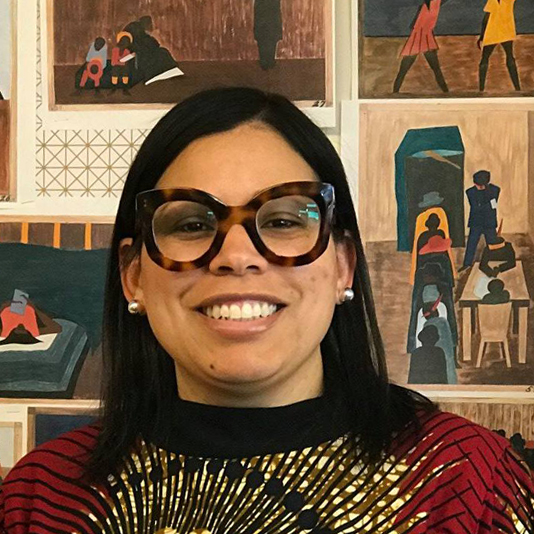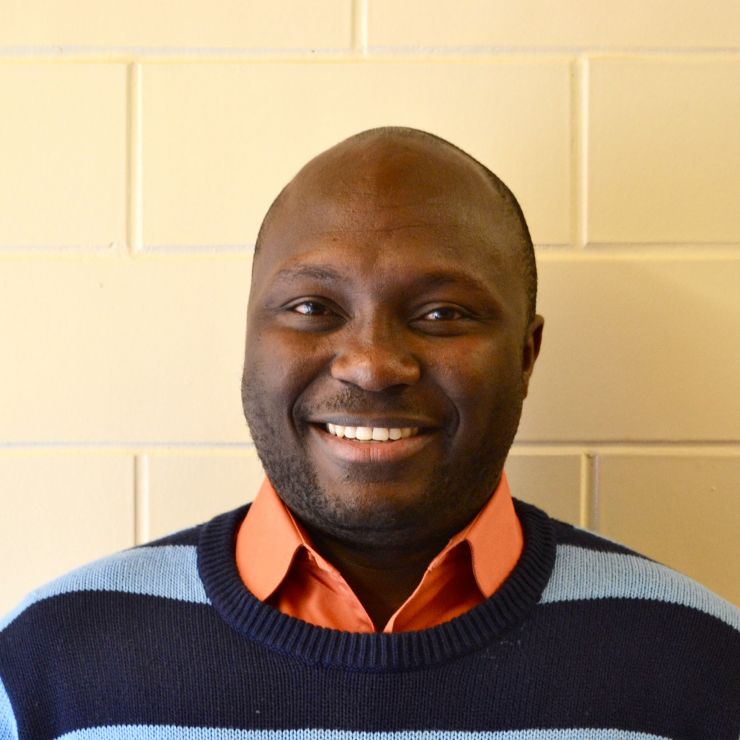Staff Spotlight Honoring Black History Month
Meet two staff members who ensure Black history is taught and celebrated at Capital City all year long.
Emmanuel Taiwo is our Lower School Director of Student Services. Emmanuel joined Capital City in August 2012 and holds a doctorate degree in Special Education from the Johns Hopkins University.
What do you love most about working at Capital City?
I love working at Capital City because of its commitment to excellence in education and support for professional growth. There is a strong culture of respect, dedication, and collaboration among all staff members. The teachers are trusted and empowered to plan and facilitate learning activities that build each student's curiosity, motivations, social-emotional skills, and joy in learning. There is a culture of collaboration and growth mindset. This is supported by schoolwide shared leadership structures that enable students, staff, and family members to lead initiatives, provide feedback, and bring diverse perspectives that benefit the school community. Also, I like our commitment to equitable outcomes for all students.
How do you think Black History Month should be taught and celebrated in school?
Black history should be taught throughout the year as part of American History. However, February's Black History Month is a perfect time to reflect and take a close look at the struggles and achievements of African-Americans in this country. It is important for educators to thoughtfully plan and celebrate Black History Month in their classrooms. Teachers can do this by giving the students ample opportunities to learn about and celebrate the contributions of African-American scientists, inventors, and trailblazers whose visions and innovations improved transportation, agriculture, technology, healthcare, music, and more. It is important for students to know how these great people shaped history despite the barriers and obstacles they encountered. Students could read books by Black authors or study the history of jazz music to gain an understanding of the contributions made by African-Americans.
What specifically is happening in the Lower School?
Lower School celebrates Black History Month by engaging students in meaningful activities that raise awareness about the contributions African-Americans have made in the history and overall development of the country. For example, our drama teacher, Ms. Dorsey worked with fifteen students to perform a piece called Black Lives Matter highlighting the protests of young people during the Civil Rights movement.
Kishanna Harley has been our High School Librarian and Technology Teacher since December 2015. She is currently enrolled in a Master of Science program in Instructional Technology and School Library Media at Towson University.
What drew you to work in school libraries?
I have been in love with the library since I was a child. I would hop on my bike, backpack in tow, and spend as much time as possible there. It wasn't just the books, it was the space as well; throughout high school and college, it served as my sanctuary. I was an English teacher for 10 years before I made my transition to become a school librarian. I wanted to push myself to pursue a science degree, continue working with high school students, and my love of all things library made the choice to become a school librarian an easy one.
What is one (or two) things you want your students to take away from your class and/or the library?
I want students to know that the library is not only a space for certain individuals, it's a place for all of us. It is especially important for students of color to know that since the beginning of time our histories have been documented and curated by people who look just like them. I think of Carter G. Woodson, who is considered, "The Father of Black History", and I think of Arturo Schomburg, an Afro-Latino, who is also considered, "The Father of Black History." Both were steadfast in their desire to ensure that our stories were a part of the literary canon and diaspora. An integral part of executing that vision, were librarians of color: such as, Pura Belpré, who became the first Puerto-Rican librarian in New York, or Sadie Peterson Delaney, who is considered one of the pioneers of bibliotherapy. She served as the director of the Veterans Administration Hospital in Tuskegee, Alabama, on Tuskegee University's campus, which is where I earned my undergraduate degree.
Why do you like working at Capital City, or specifically the high school?
I have worked with high school aged students, specifically ninth graders, my entire teaching career. I am pleased that I still have this opportunity to work with ninth graders exploring digital literacy, coding, and of course books. Capital City provides a robust budget (very important), and exceptional opportunities for me to attend workshops and professional development throughout the city and abroad. This affords me the freedom to be the best school librarian for students and staff members here at Capital City.


